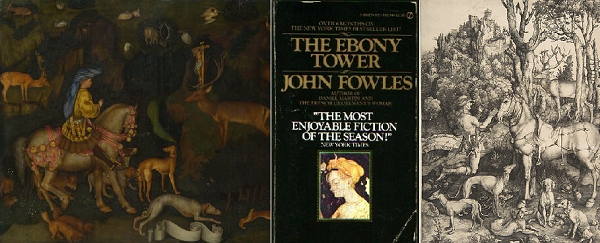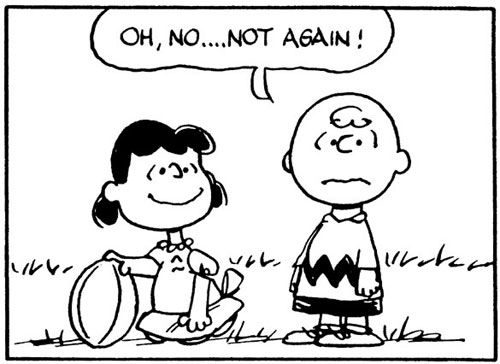Wittgenstein’s language games and the public sphere
Monday, May 7th, 2018[ by Charles Cameron — suggesting a lessening of TV Trumpery and its critiques ]
.
In a tweet earliee today, I suggested that the close reading of a text can be highly rewarding, a point I made most forcefully in Close reading, Synoptic- and Sembl-style, for parallels, patterns.
Key to a close reading is the “language” in which a given writer or speaker clothes their words.. “language” here being used both in the sense of their metaphors and forms (which is why I’ve been collecting sports and other metaphors, ouroboroi and other forms) and in the sense formulated by Witty Wittgenstein in his Philosophical Investigations (PI).
The Stanford Encyclopedia of Philosophy offers us a list of regular language games as Wittgenstein uses the term in PI:
reporting an event, speculating about an event, forming and testing a hypothesis, making up a story, reading it, play-acting, singing catches, guessing riddles, making a joke, translating, asking, thanking
I want to suggest that we could usefully think of language games in terms of the philosophical, ideological, partisan, religious or psychological drivers that propel them.
Further, in the case of Trump, we might observe that the language game he is playing is not the one his critics on, say, MSNBC, are basing their own critiques on.
And here’s the great advantage: once we’ve analyzed the differences between Trump’s language game and aims and those of his critics, we could close shop. We wouldn’t need this constant barrage of Fox and MSNBC news on the topic — any new utterance of his or Giulianis of note could simply be indexed to the sub-para describing that particular disjunction in language game, and basta! — the rest of the news “oxygen” would be available for the discussion of other topics.
As a subset of that para — I don’t suppose Mueller xxwill want to take every piece of “off the cuff” Trumpery as intended as real “truth” — “all that is the case” –he’ll surely see it as entertainment and distraction — chuff and chaff — and zero in on the key statements of the President’s worldview, viewing them as exemplars not of “truth” but of a language game to be analyzed and evaluated as such. Having zeroed in on these relatively few key phrases, many of the many critiques offered by Trump’s accusers.
**
Wittgenstein asks what all that we consider to be games have in common, and decides they share a family resemblance but — in my words, here — the cousins on one side of the family have little (a polite word for “nothing”) in common with the cousins at the other end of thr spectrum.
If the Olympic Games included language games in their list of sports, Giuliani‘s reference to FBI agents as stormtroopers wight win long jump gold.
Here’s Jonathan Chait in Giuliani’s FBI ‘Stormtroopers’ Smear Is the Key to Trump’s Authoritarian Mind-set”>:
In 1995, National Rifle Association president Wayne LaPierre signed his name to a fundraising letter referring to Bureau of Alcohol, Tobacco and Firearms agents as “tjack-booted government thugs.” The implicit association of American federal law enforcement with fascists provoked a furor. Former president George H. W. Bush publicly resigned his NRA membership in protest; LaPierre had to apologize.
Last night, in the midst of a long, deeply incriminating interview, Rudy Giuliani called FBI agents “stormtroopers.” Here was the president’s lawyer, not an outside lobbyist, comparing federal law enforcement to Nazis directly, rather than indirectly.
Stormtrooper vs jack-booted government thugs is an interesting comparison (& makes a fine DoubleQuote), and Chait’s “implicit association of American federal law enforcement with fascist” in hth cases exemplify just the kind of language extremism we should be avoiding in our policy debates.
Chait’s continuing half-paragraph illminates the arcane workings of the media machine in processing such things:
The Washington Post’s account of Giuliani’s interview noted the remark in a single sentence, in the 30th paragraph of its story. The New York Times, Wall Street Journal, and Politico accounts of Giuliani’s interview did not even mention the stormtrooper remark at all.
There are times I wish for sanity.
**
Okay, that was third and last in this series.. Previously:
On negative space in the painting.. On negative space, private morality in the public square
This:
Wittgenstein’s language games and the public sphere






